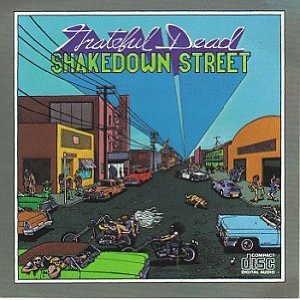Turbo tempest over TurboHercules


When the two are standing on opposite sides of an important issue, getting all red in the face at one another, I come running.
So it is with the dispute over TurboHercules, which seeks to monetize an IBM mainframe emulator, and IBM, which has claimed foul.
Jones got into this with a long Groklaw post that has 11 updates (so far) acting as exhibits. It's the fiercest debate there since the end of the Novell case, which is to say in about two weeks.
A summary is that TurboHercules started this mess, that IBM has not even filed a case, and that it looks like a shakedown by Hercules' Roger Bowler and Jay Maynard. (Raymond credits Maynard with bringing him into the case.)
TurboHercules' friends fired back. IBM loved Hercules until its founders made a business of it, TurboHercules has not filed a case against IBM, and Raymond, who is currently hosting the Hercules manuals due to bandwidth demands on them, does not live on Shakedown Street.
(I know this dates me, but I wore the grooves off this Grateful Dead album back in the late 1970s. It was produced by Lowell George of Little Feat, whose musical voice I still miss terribly. Picture from Amazon.com, which makes a market in used copies of it.)
This was followed by the usual back-and-forth. Jones was called an IBM shill. Hercules was called a Microsoft front and compared with Psystar, which tried to make Mac clones before it was stopped.
Jay Maynard himself entered the fray. He said he and Bowler had done this as a labor of love, but they needed cash now. He said he was fighting an absolute monopoly, and the plain language of IBM's pledge to open source was legally enforceable.
Here is what I think:
- Emulators are a good thing. They can act as development platforms that don't put expensive resources at risk. They can be used to test error conditions. In time mainframes, too, will go into the clouds, and IBM will want emulation to lead them there.
- An emulator is not a mainframe replacement. A mainframe is hardware geared toward high-volume, accurate transaction processing -- air reservation systems, credit card processing, big government management work. Hercules is not a threat to IBM's monopoly.
- Conspiracies usually don't exist. What seems like a conspiracy is usually a collection of accidents, people walking blindly in a virtual room and bumping into things. All parties to this dispute appear honorable.
Yes, Florian Mueller is a troublemaker. So is Pamela Jones. So is Eric Raymond. So am I, and so are you when you get riled, as talkbacks here will attest. Being a troublemaker is not a bad thing.
On the other hand, I don't think IBM has broken its pledge, but as I said yesterday I do think it has been amended, and that it's not a suicide pact.
It's evident that Hercules took a lot of time to write. It's valuable stuff. Its value to IBM is proven from its 10 year history as an open source project.
IBM needs to contrast the cost of "making an example" of Bowler and Maynard with the value in making nice. Hire the two men, take the copyright for a fee smaller than a lawyers' dinner in a Paris restaurant, and create the value in Hercules you want your customers to have, at a price you control.
That's what I'd do, anyway.
NOTE: For those who might think the album cover accuses anyone of anything, the main lyric. "Love is shaking on Shakedown Street. Used to be the heart of town. Don't tell me this town ain't got no heart. Just got to look around."